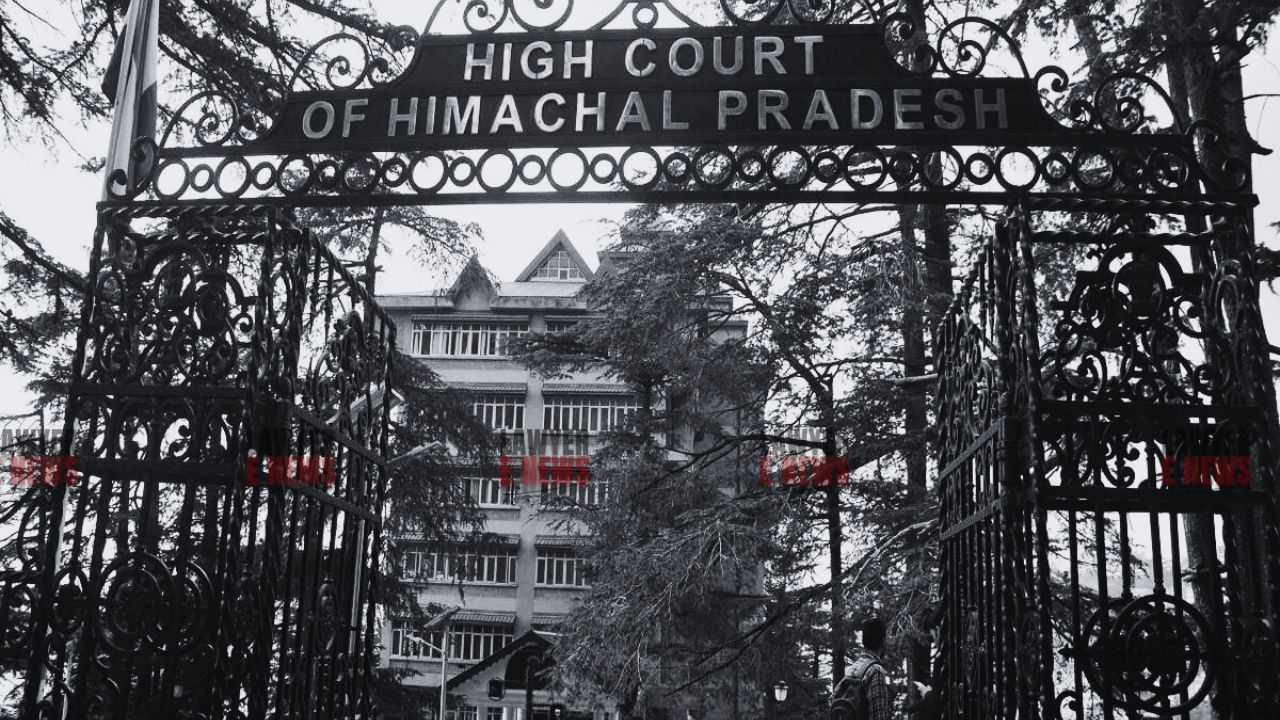-
by Admin
15 February 2026 5:35 AM



The Himachal Pradesh High Court has dismissed the State's appeal challenging the acquittal of Kunal Kapoor @ Tinku, who was charged under Sections 307 (attempt to murder), 452 (house-trespass after preparation for hurt, assault, or wrongful restraint), and 506 (criminal intimidation) of the Indian Penal Code (IPC). A division bench comprising Justices Tarlok Singh Chauhan and Sushil Kukreja found no merit in the prosecution’s case, citing inconsistencies in witness testimonies, contradictions in the evidence, and the prosecution's failure to explain the injuries sustained by the accused during the incident.
The incident occurred on November 20, 2007, when the accused, Kunal Kapoor, allegedly entered a room where the victim, Sagar Chand (PW1), was resting with his associates. The prosecution claimed that Kunal, armed with two knives, demanded the immediate evacuation of the premises. Upon refusal, the accused reportedly stabbed Sagar Chand in the stomach. The injured was taken to the hospital and subsequently referred to PGI Chandigarh for treatment. A First Information Report (FIR) was lodged based on the statement of one Kamaljeet Singh (PW4), a witness to the incident.
Kunal Kapoor denied the charges, claiming that the injury to the victim was accidental and inflicted by another individual during a scuffle. The trial court acquitted the accused, which led the State to file an appeal in the High Court.
The High Court carefully examined the testimonies of the key witnesses, including the injured victim (PW1), Kamaljeet Singh (PW4), and Joginder Singh (PW2). The court noted several inconsistencies. For instance, although PW1 claimed to have made a telephonic complaint to the police immediately after the incident, he had also testified that he lost consciousness due to the severity of his injuries, making it improbable that he could have called the police.
The court also pointed out that PW4, Kamaljeet Singh, who supposedly made the statement leading to the FIR, was unlikely to have been at the scene when his statement was recorded. Evidence showed that PW4 had accompanied PW1 to the hospital and could not have returned in time to provide his statement to the police at the dera, where the incident took place. This raised doubts about the prosecution's version of events.
A crucial aspect of the court's reasoning was the failure of the prosecution to explain the injuries sustained by the accused, Kunal Kapoor, during the altercation. Medical records (Ex. DA) indicated that Kapoor had sustained multiple injuries, including a broken tooth and two sharp-edged wounds. The court observed that none of the prosecution witnesses mentioned these injuries, which should have been explained as part of the prosecution's narrative.
The defense argued that the injuries on the accused resulted from a scuffle involving the victim and his associates, with one witness (DW1) testifying that the stab wound to the victim was inflicted accidentally by another person, Vijay Kumar, during the melee. The court found this explanation plausible and supported by the medical evidence.
The court further highlighted issues with the physical evidence. Although two knives were recovered from the scene, neither had any bloodstains, despite being identified as the weapons used in the attack. Additionally, the clothes of the injured victim, which were allegedly torn by a single knife blow, showed cuts in multiple locations, casting further doubt on the prosecution's case.
The court reiterated well-established principles governing appeals against acquittals. It noted that an appellate court must exercise caution and can only reverse an acquittal if the trial court's findings are manifestly perverse or if no other conclusion is possible. The court found that the trial court had correctly assessed the evidence, noting that the contradictions and omissions in the prosecution's case raised reasonable doubt about the guilt of the accused.
The judgment referenced the Supreme Court's decision in Rajesh Prasad vs. State of Bihar (2022), emphasizing the presumption of innocence that strengthens upon acquittal. The court also cited H.D. Sundara and others vs. State of Karnataka (2023), where it was held that an appellate court must not interfere with an acquittal unless the evidence points to only one possible conclusion: guilt beyond a reasonable doubt
The Himachal Pradesh High Court's decision to uphold the acquittal of Kunal Kapoor reinforces the importance of the presumption of innocence and the necessity for the prosecution to provide consistent and credible evidence. The ruling underscores the judiciary's cautious approach in overturning trial court acquittals and highlights the need for thorough and reliable investigations, particularly in cases involving serious charges such as attempted murder.
Date of Decision: September 3, 2024
State of Himachal Pradesh vs. Kunal Kapoor @ Tinku
